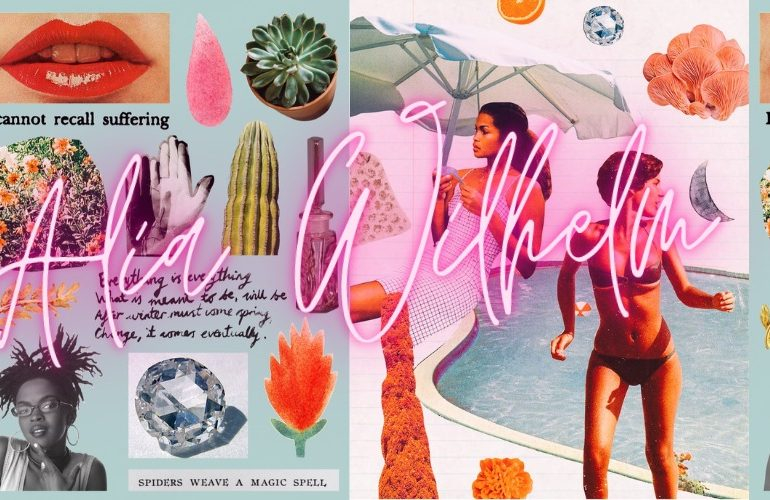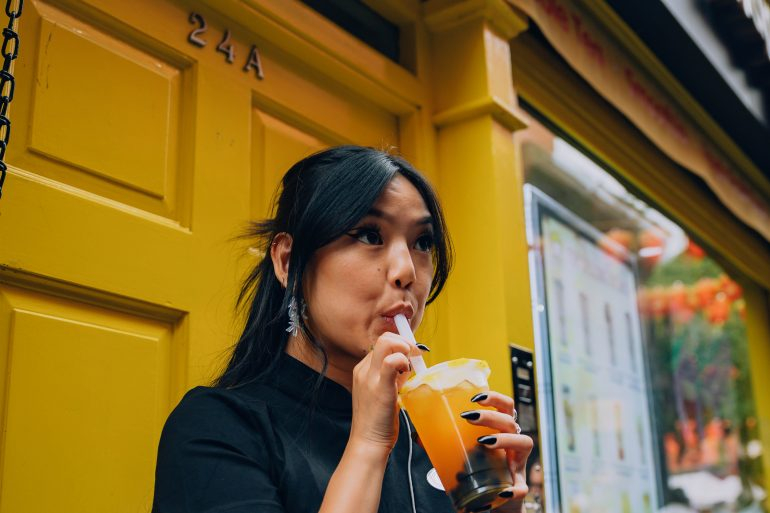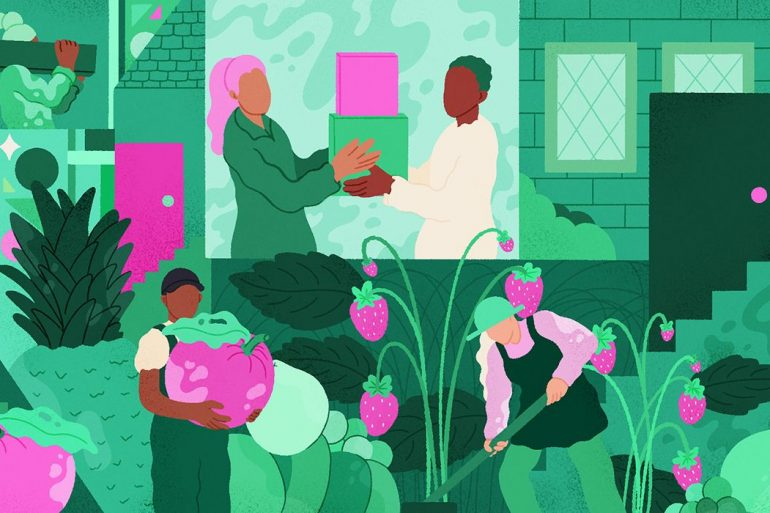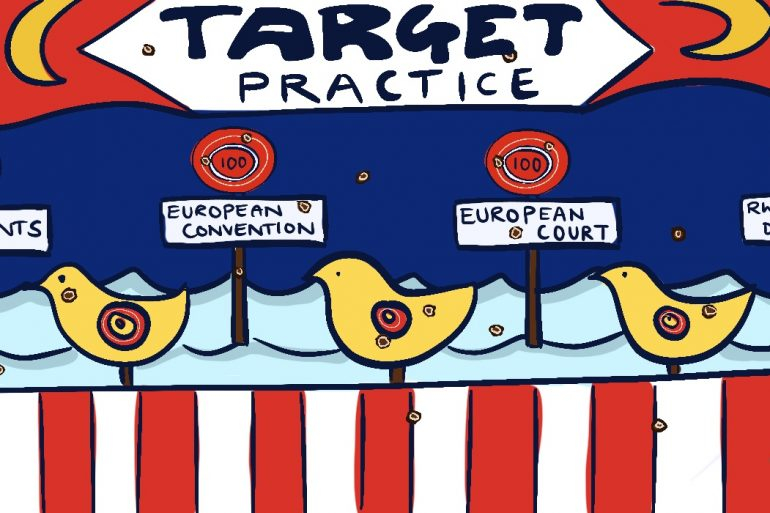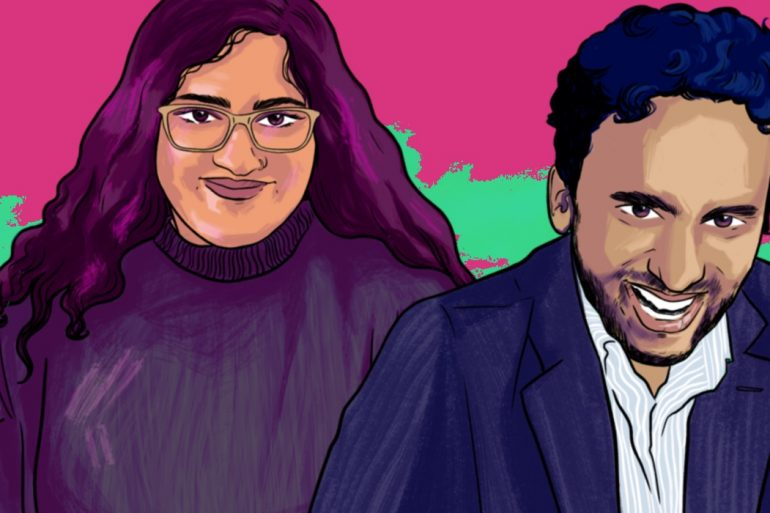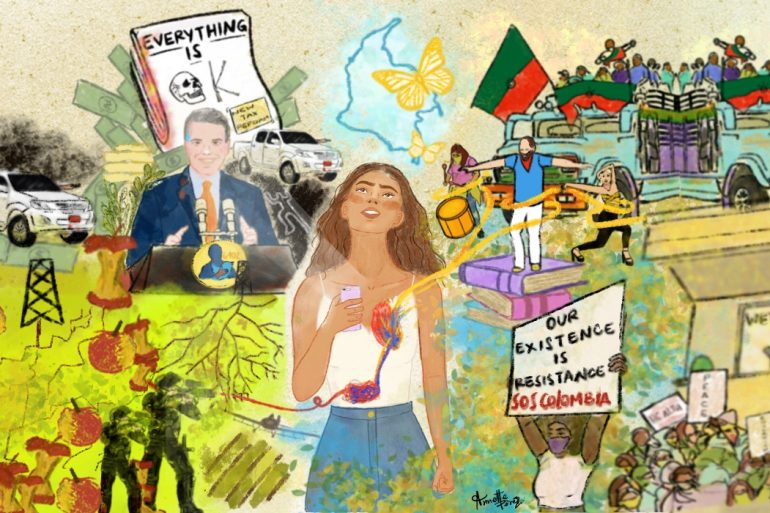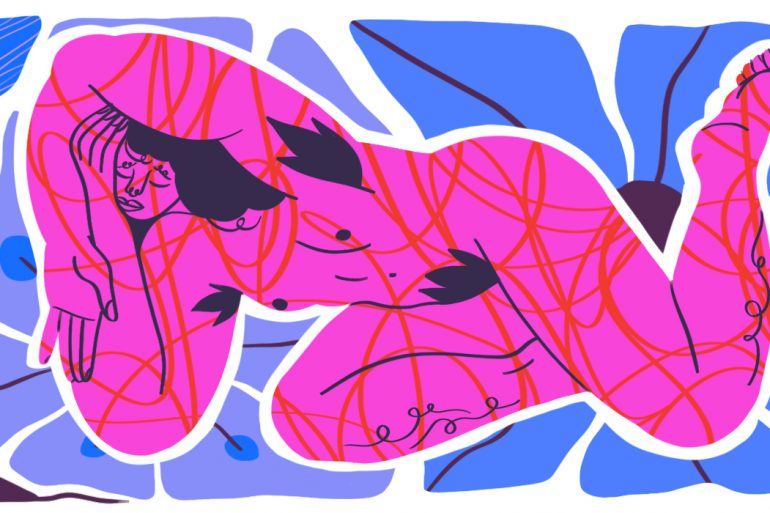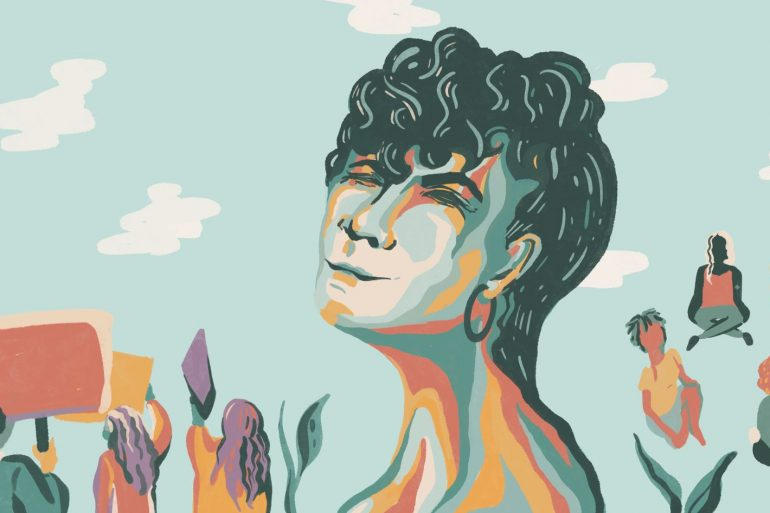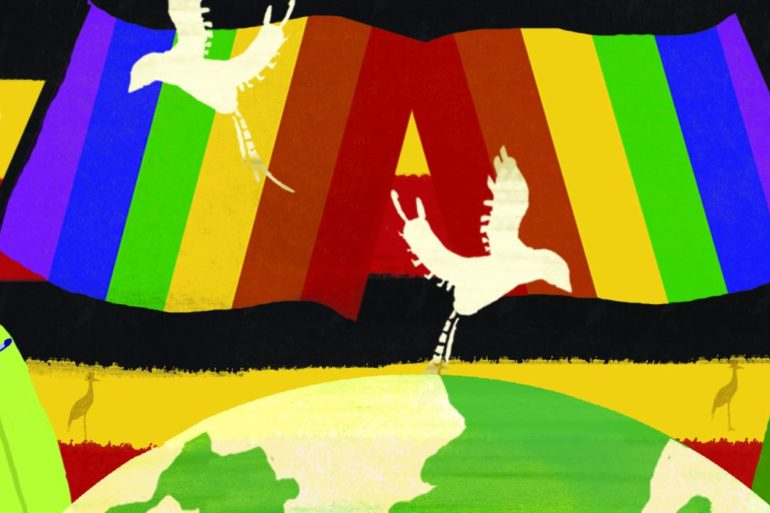Filmed over five years, Freedom Fields follows three women and their football team in post-revolution Libya, as the country descends into civil war and the utopian hopes of the Arab Spring begin to fade. Through the eyes of these accidental activists, we see the reality of a country in transition, where the personal stories of love and aspirations collide with history. Freedom Fields is an intimate film about hope, struggle and sacrifice in a land where dreams seem a luxury; a love letter to sisterhood and the power of team. shado sat down with British-Libyan director Naziha Arebi to talk more about the creation of her self-shot feature debut.
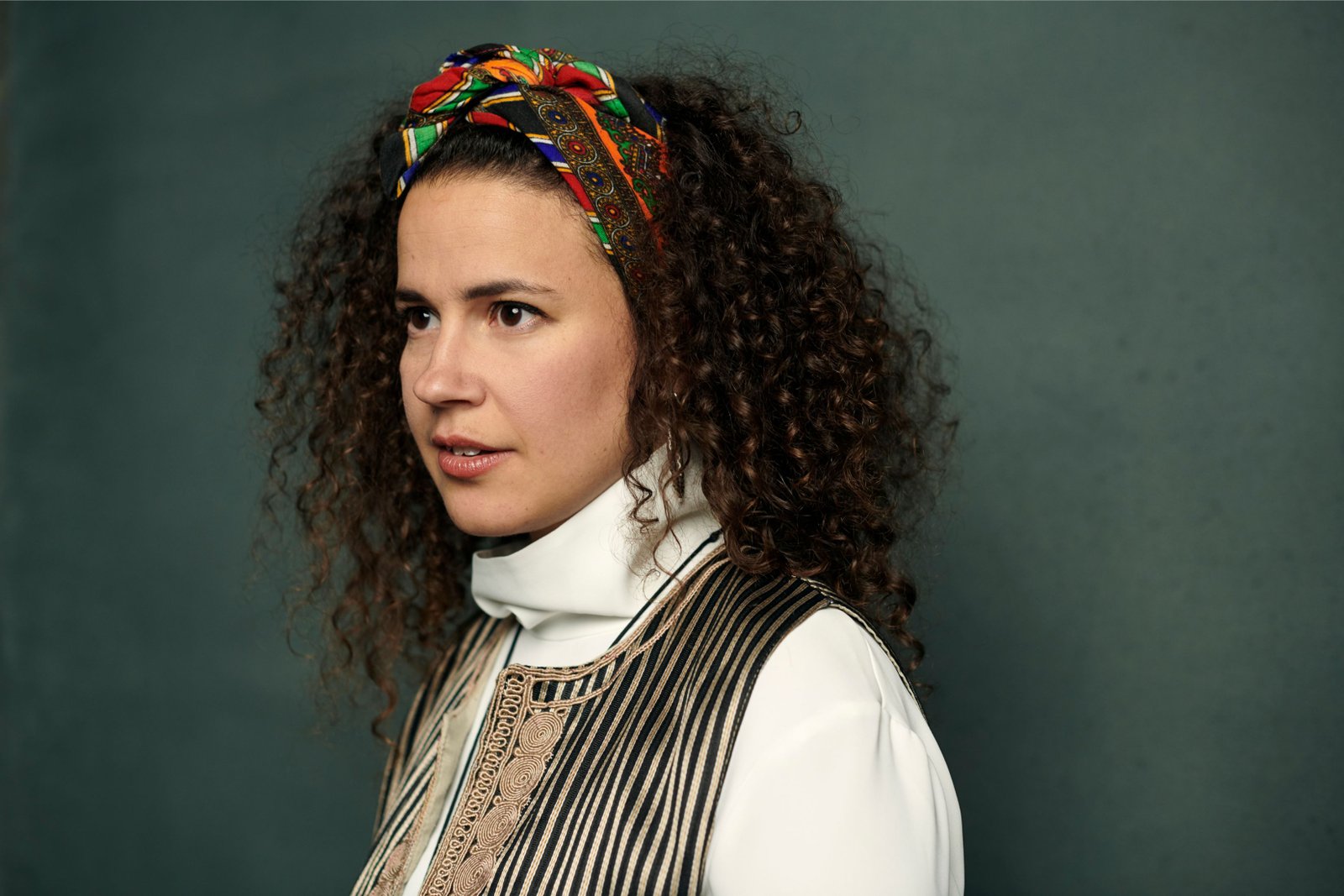
Freedom Fields is a film about having the power to dream, to have a choice to carve your own future, against privilege, and to impact those around you, even if just for 90 minutes on a field. It is an intimate, tactile portrait of a moment in time in a country people know very little about about. A love letter to a place, to sisterhood, to the power of the team and community. A testament to taking action, finding strength in the face of adversity, and sharing that will, power and joy with others and the next generation.
Let’s talk about motivations for making Freedom Fields – why was it such a necessary story to be told and what was your personal connection to the topic and the characters?
My main motivation to make ‘Freedom Fields’ was the Libyan revolution. I felt that, for a long time, we were seeing certain narratives out of the region. Libya was really unknown, and I wanted to explore sharing an alternative vision, a more personal one out of the place I had come to discover. So, when I met these women – who were just fantastic and were from so many different parts of society – I felt like they were a wonderful vehicle through which to explore the diversity and complexity of a place like Libya.
What was your main trajectory into documentary film-making before Freedom Fields – what previous work led you to this?
‘Freedom Fields’ was my first feature film, and I really learned on the job as I went along. I started making this before I had made any other documentaries. Along the way, I made a couple of shorts as well as working on another feature-length documentary and some educational films for Libyan TV. It was very much a learn-as-I-go sort of situation and was quite a punk way to work – in the sense that everything was improvised. With a country like Libya, that’s kind of how it had to be, which I think results in the film having certain energy about it. This was something which, in the edit, we actually really wanted to keep, rather than hide or get rid of.
Who is the film for? Is it primarily targeted at Libyan audiences in the hope of raising the profile of the team and spotlighting women’s football, or do you see it instead targeted at western audiences – and, if so, why?
The film should be for a multitude of audiences. I feel that it should have multiple layers that play on different levels to different people. Whether that’s within Libya, within North Africa, within the Middle Eastern region or internationally in the West. One of the important things for me to do with this film was to break down the image that we see from the region and to provide a more human lens into the area to find a way for international audiences to connect in a way the news often does not allow you to. Simultaneously for the region and specifically for Libya, I believe it’s important that people see representations of themselves.
There are hardly any well-known Libyan films, and
when people don’t see themselves on screen, or they don’t hear stories about themselves, or all they ever hear is negative stuff – it becomes the self-repetitive cycle.
I felt that it is important to raise up the profile of these amazing people so that we see ourselves represented but also to inspire ourselves, as well as inspiring people outside of Libya.
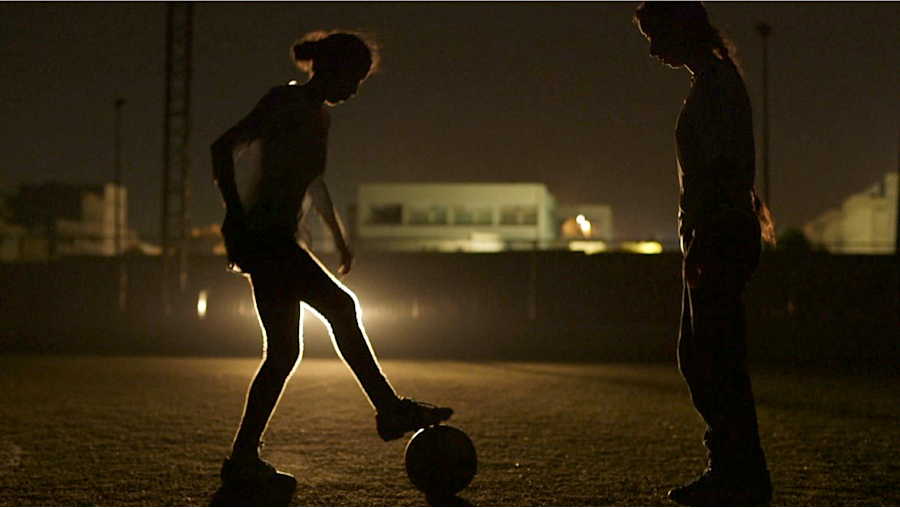
Did you know, starting out, that you would be filming for such a long duration?
When I first started the idea in 2011, I had imagined I’d finish in 2013; the team would go to a tournament and that would be that. Fast-forward seven years later when the film finally premiered, it was definitely longer than I had anticipated. I think that as a result of the time spent it has become far more interesting, rich, and dynamic.
The film is no longer just about football, it is about so many other things – and football is just the vehicle in which that all unfolds.
How much material did you have to edit from – were there any difficult omissions?
There were hundreds and hundreds of hours of footage – as you can imagine after filming for five years. Of course, as they say, you have to “kill your darlings”; you have to cut scenes that you are absolutely in love with – but if it doesn’t serve the story or if it’s just there because it’s an indulgent moment, you don’t have a choice. There were many scenes and many storylines, that we had to work out: does it feed the essence of what the story is? That was a very difficult and long process. The first initial watching of all the footage is quite revealing and emotional. Often when you’re filming, you don’t realise the extent of the situations that you are in – then, when you’re separated from that environment and sat in an edit room, you can have secondary effects of that filming situation making it a very intense process.
The build-up of the three main characters is done so well and you really feel intimately connected to and invested in the lives of Halima, Fadwa and Nema. Did you always intend on having these three specific women as the main characters, or did this develop over time?
The main arches and interests developed over time. Some – Fadwa, for example – was right from the beginning. Others revealed themselves as I went along. There were other storylines of other women within the film, but you can’t have 30 main storylines. I felt that these three women really represented different parts of the team, and of Libya. They had very different characters, but they kind of meshed and gelled so well together so I felt like it was a wonderful way to weave that story – through these women.
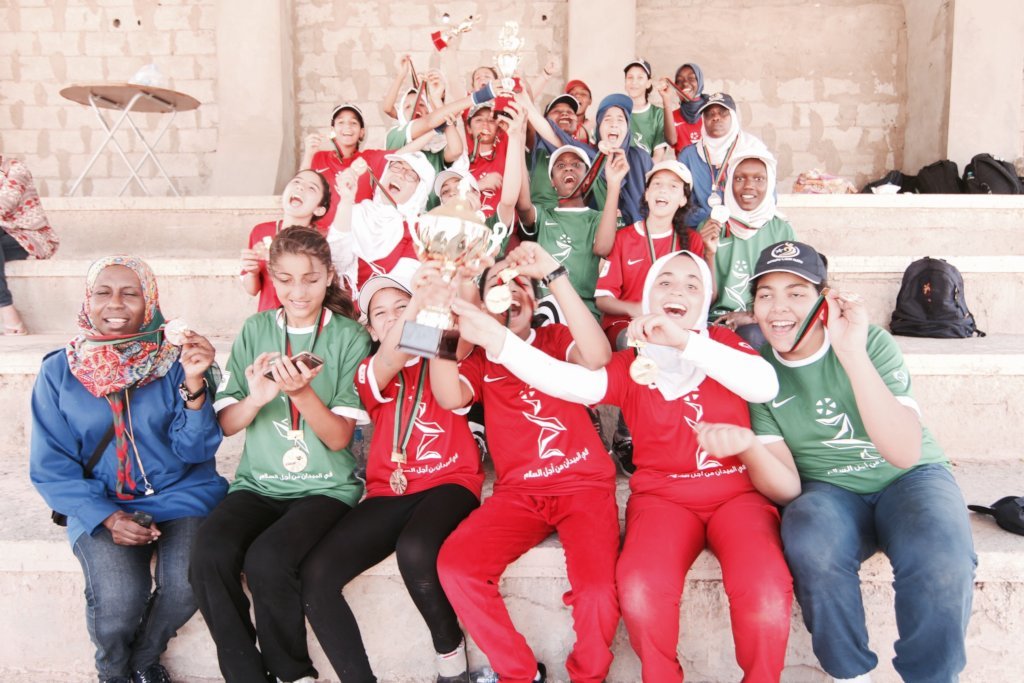
Given the intimacy of a lot of the shots and scenes, you clearly have a personal relationship with the women you are following. Was this an important part of your process, and did it develop over time?
It was incredibly important for me to make an intimate film. I wanted the camera to not be a voyeur or in a position of power; I think it is very important that we as an audience are on a level with these women because otherwise, you can visually imply that these women are victims if we don’t have that kind of connection. I also wanted it to be an intimate film because
Subscribe to shado's weekly newsletter
Exclusive event news, job and creative opportunities, first access to tickets and – just in case you missed them – our picks of the week, from inside shado and out.

I like the details of life; I like the up-closeness; I like that things are tangible; that you feel like you can touch them and you’re there.
For me, visually but also emotionally, it was important to have this intimate aesthetic and feeling within the film, because it’s not just a visual – it’s a feeling and a connection. With some people, that connection came instantly, and for other people, it took a very long time. There was a lot of hanging out, spending time with people’s families; a lot of eating ice cream, a lot of driving in cars and singing and playing football and just being part of the team.
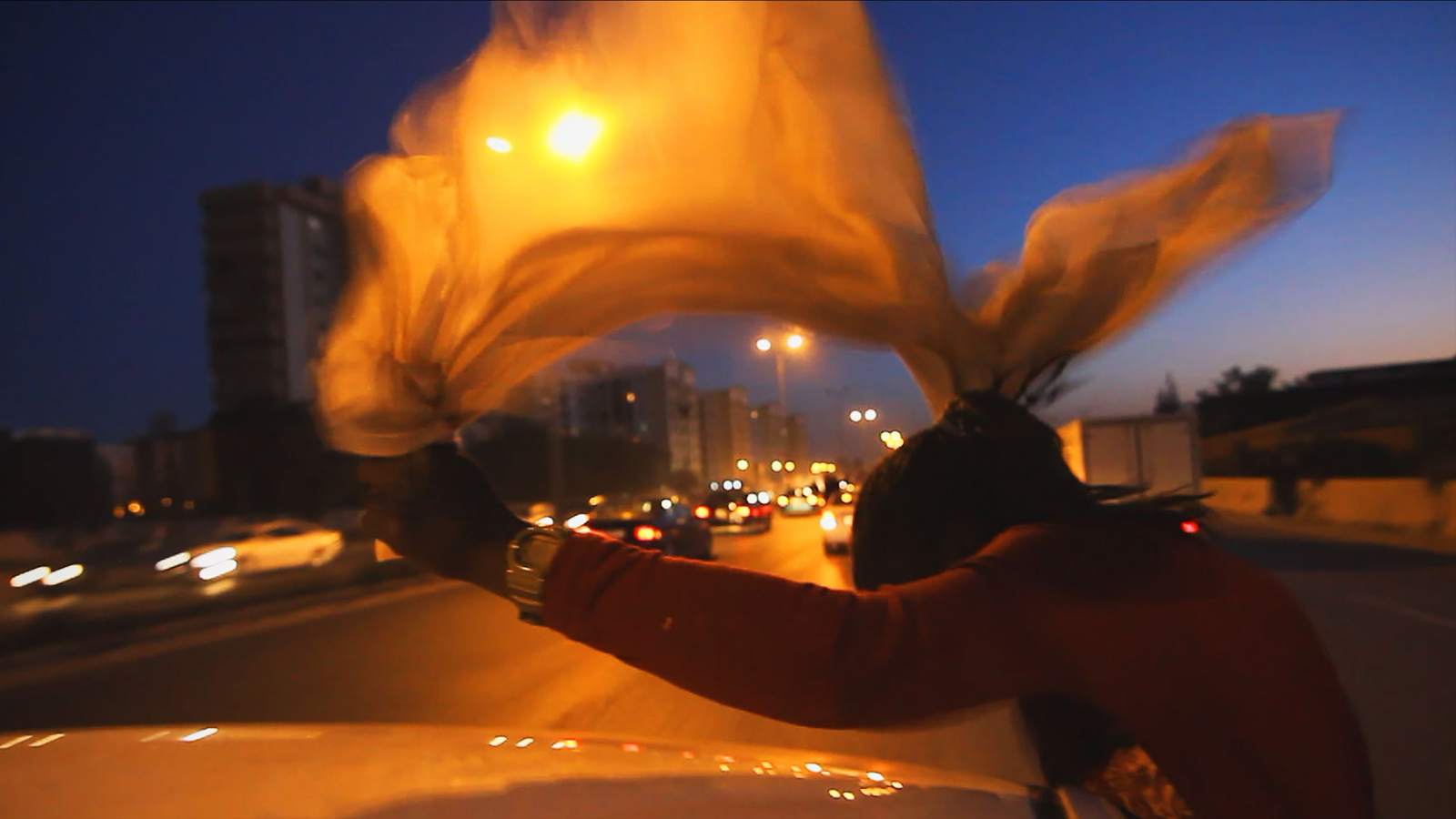
You mention that you moved to Libya as part of a journey to discover a side of your identity and heritage. What are your biggest personal takeaways from your time spent in Libya over the course of the five years? Are there any preconceptions you had which have since changed?
When you grow up in the UK but you are a second-generation immigrant or you’re from the diaspora, and there is a connection to your heritage or your family identity but it’s not something you’ve lived, it’s always through rose-tinted glasses. So, when I moved to Libya, it was wonderful to enjoy those moments: the food, the music, the family connection, the intimacy and the strength of the women in my family – that was wonderful. On the other hand, there were lots of things that I found very frustrating; that people who were living there also found frustrating, so that was important to experience. But it’s an ongoing process. It’s not something that just stops after those five years – it continues to develop.
Are there parallels to be drawn from being a woman making documentaries as to your football playing subjects? In terms of struggles VS opportunities?
Of course, the obstacles women faced playing football were obstacles that I would face as a filmmaker, which is predominantly a male role not just in the Arab-speaking region but in the world. I came up against the same struggles, the same problems – but at the same time, being a woman with a camera also enabled me to soften certain tense situations which may have escalated into a confrontation. Because I’m a woman, I was sometimes given a slightly different treatment, which in some ways was very bad but in other ways, it was very useful. I often have problems with that. I don’t think I could ever have made this film if I was a man, and I think that made it a very different experience.

Obviously, the whole idea of a woman’s national football team in Libya created political opposition and pressure. Did you come up against difficulties when filming the documentary?
There were lots of obstacles that came up when filming the documentary as you’ve probably seen in the film, and they just kept mounting. There were even more than what was shown in the film, but I think an audience can only take so much drama. However, since the film has come out, the Libyan community has been incredibly supportive, which is wonderful – so, hopefully, things will start to change.
What do you believe is the root of this opposition to women’s football? As the women said, there hadn’t always been opposition, yet this is something that developed and increased with and since the revolution. Do you see this changing?
I think the opposition is not religious – it’s culture, it’s society, it’s fear, it’s control. Often, in times of conflict, when people can’t control the conflict there are certain aspects they feel like they can control – and often women become one of these sites of control. However, I think that it’s just fear more than anything. And, hopefully, things will change.
I always have hope, because without hope, what are we?
Through what you learnt during the process of filming, what are some of the biggest ways football can be used to unite women – both in this Libyan context but also in communities more generally?
For me, I feel like football is a non-elitist form through which to bring people and communities together to play; to challenge; to allow people to develop relationships with people they would never have done from opposite sides of the conflict. It allows people to find greater strength within themselves, not just physically, but also to own and take up more space within society. It allows people to integrate more, but all from a place that is seemingly non-political and non-elitist. I think that’s really important, and a beautiful thing and football can do this across the world – not just in Libya. As we have seen in the past in South Africa, or even in the First and Second World War, it’s an incredibly powerful tool.
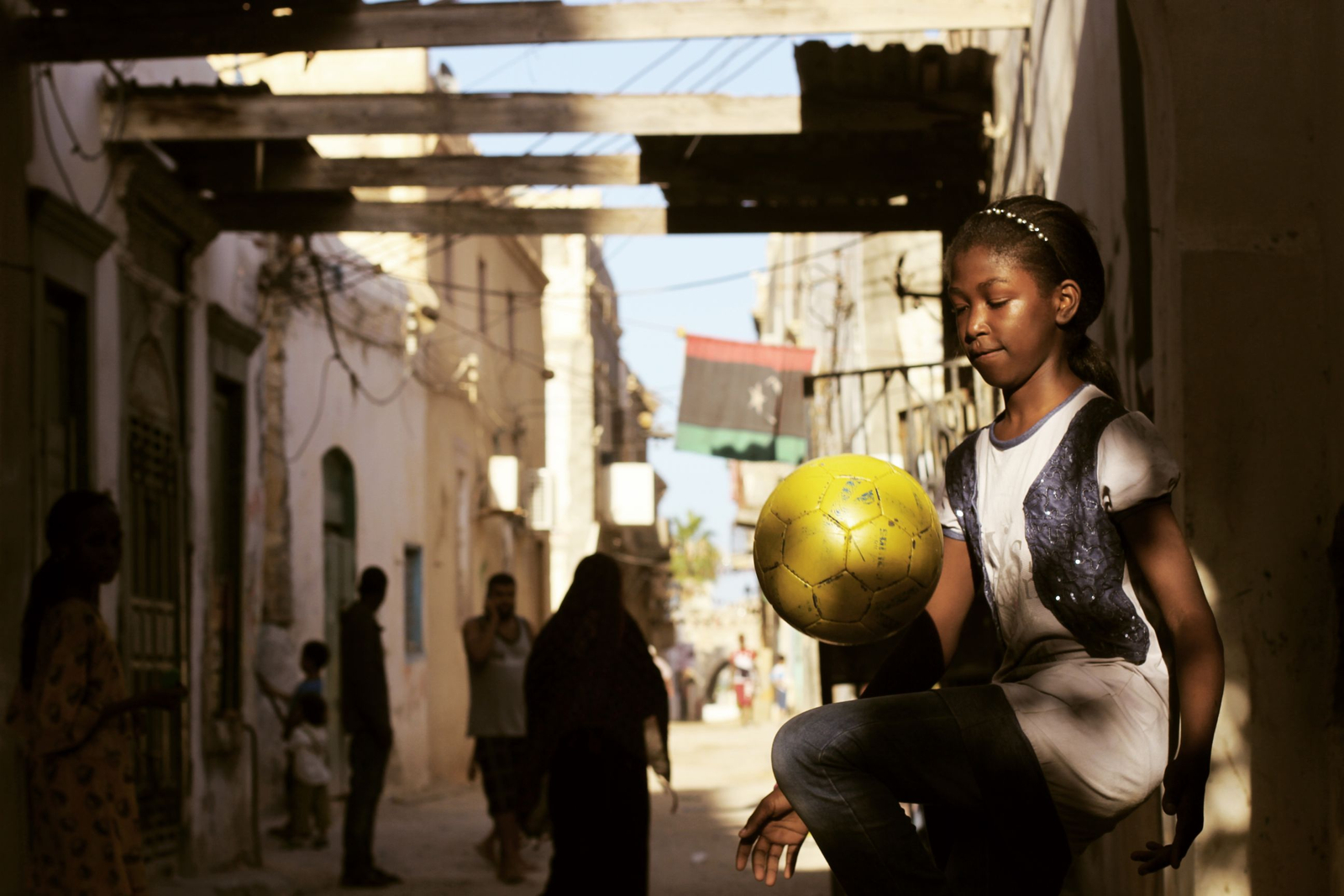
We leave the women at the end in a new chapter in their lives, having set up an NGO to use football as a tool for social change and to inspire new generations of women. What does the future of women’s football in Libya look like to you in five years’ time?
In five years’ time, who knows what the situation in Libya will bring! I hope that the NGO – which is doing fantastic work, working in schools, refugee camps, orphanages and with the scouts – not only will they have developed and expanded all across Libya. At the same time, I hope that the football federation will have developed, and that society would have softened to the idea of women’s football – and that people will really see the benefits of sport and see it as a tool rather than a threat. Hopefully, we’ll have a strong national team and young girls will look up to that, then football can be regarded not just as a form to play but as a form to engage in society and community.
Where can we next see Freedom Fields?
We are currently screening across the country. We have had our theatrical release in cinemas, and this is continuing. We will have a very special screening on the 8th July in both the East and West of London and all the proceeds will go to ‘Hera’, the NGO set up by the protagonists from the film. The Q&A will be conducted by Felicia from Season Magazine, which is a women’s football magazine. That will be at the Rich Mix and The Lexi. We also have screenings all over the UK from Hackney to Scotland and you can find them on our website.
To find out where the film is playing head to: www.freedomfieldsfilm.com
Click herewatch the youtube trailer


